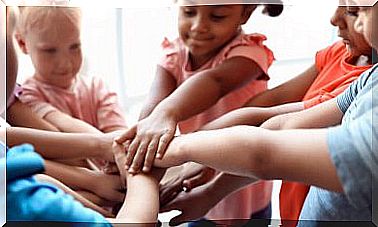Inherited Fears. How To Avoid Them?

Many of our fears are inherited fears, a feeling passed from mother to child without will and without any guilt ; but they must necessarily be controlled when they appear clearly in our sight. Just as we fear things that we do not yet understand, it is possible that we transmit that same emotion to our children.
As fearful as we are of something, it is paramount that we raise our children serenely. If we know that there is no imminent risk, it is advisable to control our emotions and let the little ones feel their own. Parents are the main influence on children, so sometimes the “inheritance” that we leave is a characteristic of our personality.
However, are there scientific foundations that show that fears can be inherited? According to experts, certain traumatic situations could be genetically transmitted in up to three different generations. In this particular, fear is generated by an experience that had an impact on behavior; however, this statement does not prove that there is a DNA phobia.
What are the unfounded fears due to?
There are fears that are born with us, but rather they are due to reactions to changes, for example the newborn who fears falling or cries for new sensations such as the variation in temperature in the environment.
However, we could not say that he has genetically inherited the fear of falling , instead later on he may be influenced by fear of being alone or seeing an insect.
In any case, unfounded fears are not entirely unfounded ; Unfounded means that they have no reason for being or that there is no justification to feel it, but in theory they appear because a reason pre-existed in society that spread among people. So, the foundation of such fear is found in the transmission of this idea over the years.
On the other hand, we tend to scare children with non-existent characters like “the coconut” or “the madman who is going to take you”; This unjustified fear is generated by ourselves and the trigger for possible phobias of being abandoned, fear of insects or any unknown element. These are the main fears inherited from generation to generation, with no genetic information involved.

How to avoid inherited fears?
If we talk about genetic inheritance, it would be from a scientific point of view: inevitable. However, as we have already explained, we speak of a rather social and behavioral inheritance; It is scientifically recognized that fears are learned rather than inherited, which is why there is a total capacity to avoid them.
To ensure that our children do not share the fears that have accompanied us for life, the main thing is to have self-control. Although there is no exact way to avoid feeling fear or to make it disappear, the possibility lies in us to develop strategies to face it.
In this sense, as we know that the life of parents is full of sacrifices; This is one of the efforts that we must necessarily consider making. If we have a phobia, it is understandable that it cannot be easily controlled, but it is something worth facing with gallantry to protect children from being scared by seeing us out of control.

That said, how do we prevent our children from inheriting social fears? Many people are afraid of snakes for example, but perhaps a child is curious about it, without knowing the danger. In this sense, we are the adults who as a precaution take him away from her and with horror we warn him of the risk; At this time it is possible that we are transmitting a new fear to the little one.
To avoid a possible phobia, it is important that we control our stress, use the correct language and try to make it reflect rather than scare it, it is convenient for the child to obtain lasting learning. We also prevent his fears from getting out of control by making him emotionally unstable.
In other cases, fears are totally socially transmitted by factors external to individual emotion ; for example fear of crime, inflation, or singleness. In this regard, it is possible that without feeling a genuine emotion towards this, we allow ourselves to be carried away by the opinions of others and end up involved in chains of rumors that affect us and therefore also our children.
Sometimes the experiences that are traumatic for people close to us, frighten us just as if they had suffered us directly ; It is the same thing that happens to children, because they trust the security that their parents transmit to them. Therefore, when adults lose control, we can inexorably provoke the little ones’ own lack of control.









